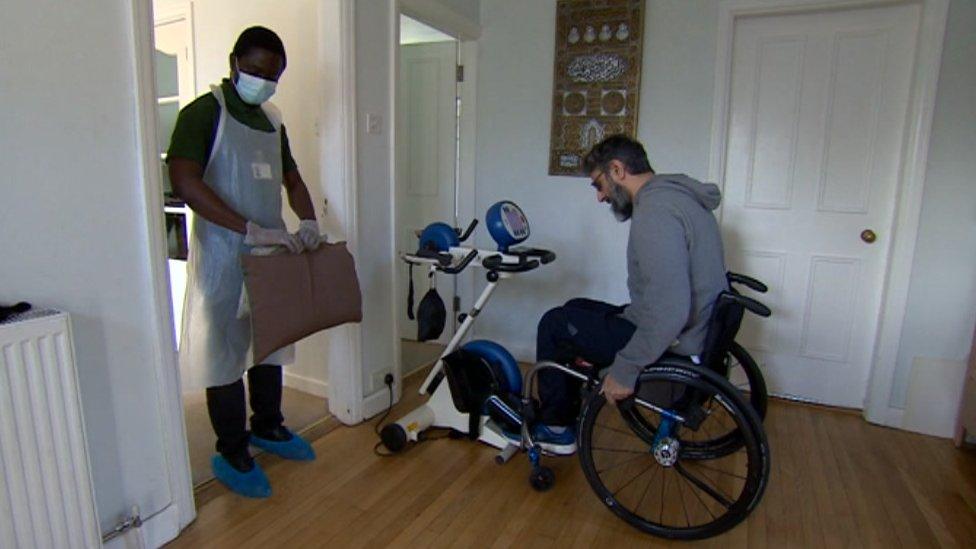Paralysed Birmingham surgeon returns to work after cycling accident
- Published
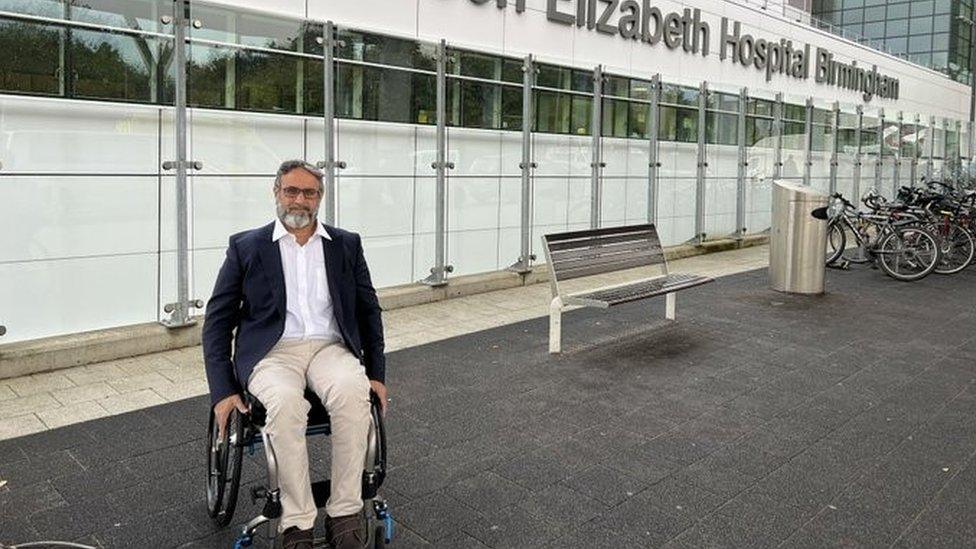
Mohammed Belal has gone back to work and will carry out his first surgery later this week
A surgeon paralysed in a freak cycling accident has returned to work to continue operating after almost two years of intensive rehabilitation.
Mohammed Belal, a consultant urologist at Birmingham's Queen Elizabeth Hospital (QE), was struck by a tree while out cycling in 2021.
Paralysed from the waist down, he said his goal was always to return to work.
Having treated patients with spinal cord injuries, he said he was a better doctor as a result of his experience.
"I spent a lot of time looking after people with spinal cord injuries so I know both sides now," he said.
"I feel positive as I've been overwhelmed by the support I've had and while it's about accepting, I am privileged and it's about not giving up."

He was struck by a tree in Meriden in 2021
Mr Belal, who took up cycling during lockdown, was injured as he travelled through Meriden in Warwickshire with a friend in February 2021.
He was travelling at about 25mph (40 kph) when they saw a tree about to fall in a gust of wind.
"There was no time to react. The next thing I knew I woke up and tried to get up and realised I was paralysed," the father-of-three said.
He suffered other injuries, including broken ribs, and said he remembered telling paramedics the paracetamol they were offering might be enough to help him.

The accident led to many months in hospital
What followed was multiple spinal operations, eight months in various hospitals and hours of rehabilitation, while his wife adapted their double garage at their Birmingham home with suitable accommodation.
"What I've learnt as a patient is hope is very important," he said.
"I recognise from the other side that I accept what has happened to me, but having hope I will work to get better. It allows me to push and push in rehab, to do the next thing that's needed.
"You never know what an individual's outcome will be."
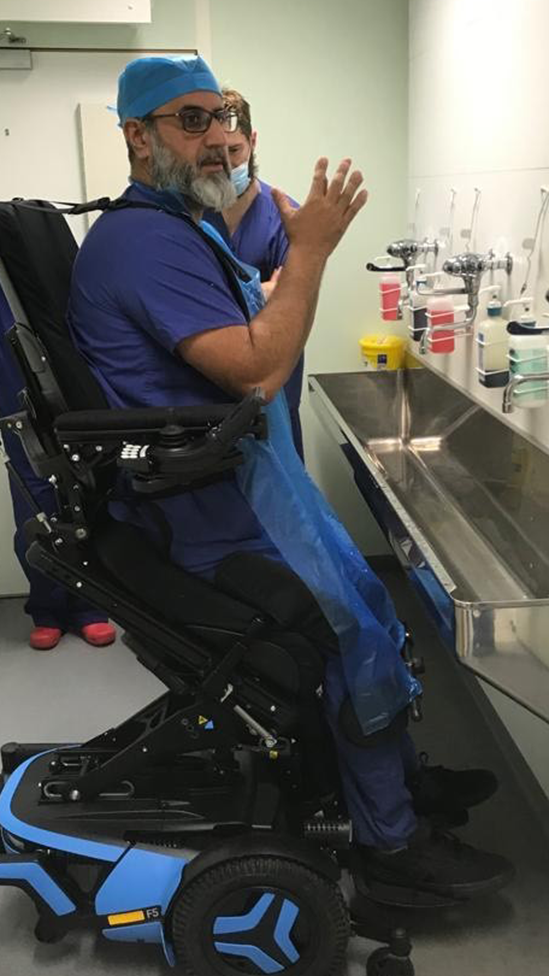
Mr Belal now has a "virtual" standing chair to enable him to carry out operations

Mr Belal, 48, said two moments stuck in his mind as being the most challenging since the accident.
Days after being admitted to hospital, speaking to surgeons he said he realised "this is not going to be over in weeks, this will be years" and secondly when he hoped to go home for his birthday last year, but was told another major spinal operation was needed.
"So I had to reframe it," he said.
"Once I did that I was fine. It was important to me to manage my expectations and think yes, this has had a huge impact, it's fine to be upset and embrace it, but it will get better and pass - and it did."
His success in rehab has led to a slight recovery in his left leg and his return to work last week.
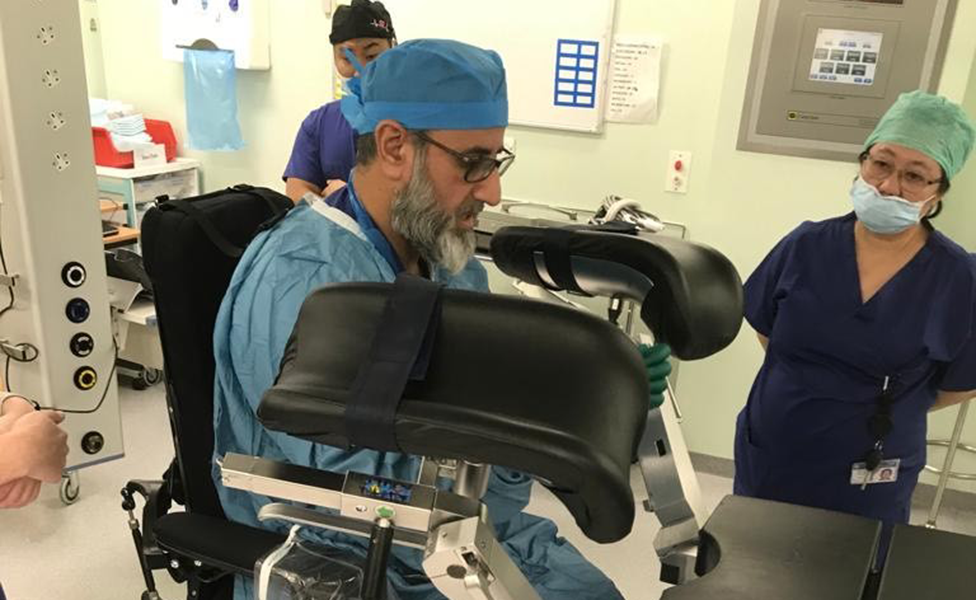
Colleagues have been very supportive as he prepared to return, he said
He will conduct his first operation at the QE later this week in a specially adapted "stand-up" wheelchair.
"My trust [the University Hospitals Birmingham NHS Trust] has been so supportive in getting me back to work, as have family friends and colleagues," he said.
"It's so gratifying being in the service of others and the letters I received from patients showed me I had to go back.
"The relationship I have with my spinal cord patients will be very different now - I am a better doctor as a result of this."
He said he was among a small number of surgeons working in a wheelchair.
While he said it would have been easy to leave the profession, he felt there was a second chance and wanted to take it.
"I want to bring some positivity back to the NHS if I can. We've been through a difficult time," he added.
"I still have my hands, my brain, my family, friends and colleagues - what's not to be grateful for?"
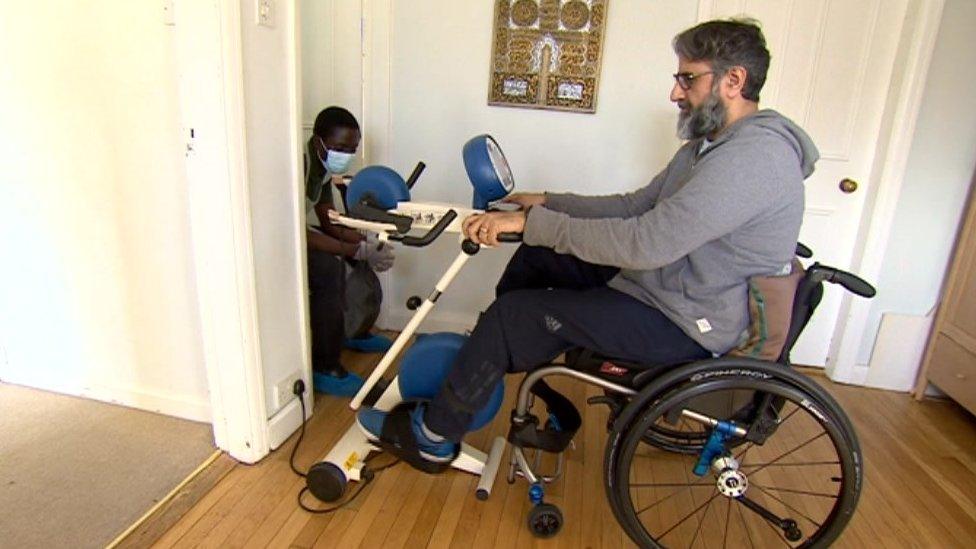
Mr Belal has continued his rehabilitation at home

Follow BBC West Midlands on Facebook, external, Twitter, external and Instagram, external. Send your story ideas to: newsonline.westmidlands@bbc.co.uk, external
Related topics
- Published19 January 2022
